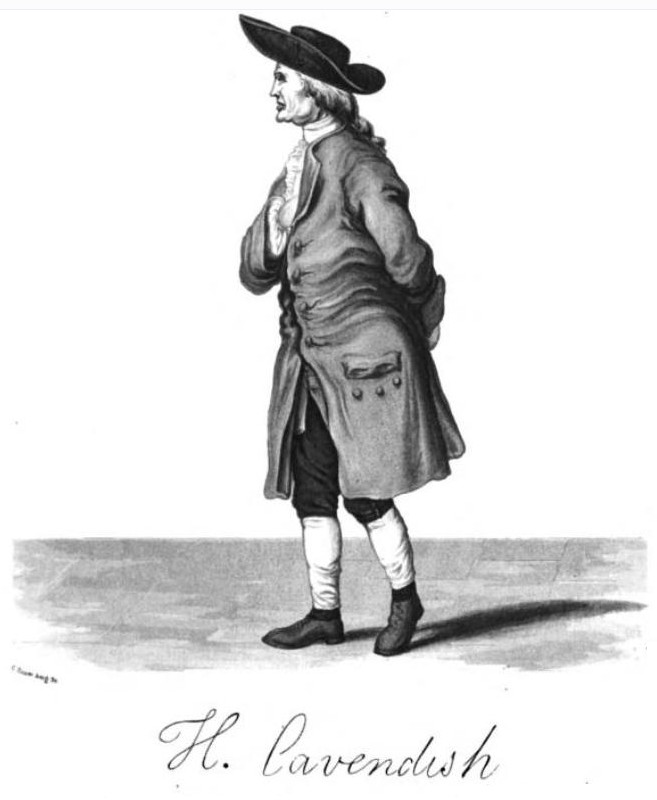
Henry Cavendish (1731 – 1810) was one of the great experimental and theoretical chemist and physicist of the 18th century. So meaningful were his contributions to science that James Clerk Maxwell named the University of Cambridge’s physics laboratory in his honor after he founded it in 1874.
Henry was born in Nice, France, due to his family traveling at the time of his birth. He was educated in a private school in London then attended the University of Cambridge in 1748 where he stayed for three more years. His father, Lord Charles Cavendish, was involved with members of the Royal Society of London and took Henry to meetings in the last 1750s. By 1760 Henry was became an elected member of the Royal Society and from there on lived a life dedicated to science.
His interest and achievements in science were vast and wide ranging. He began his work at the Royal Society by heading a committee to review the society’s meteorological instruments. This initiated his research in chemistry and in particular gas chemistry. His is credited with being the first person to isolate hydrogen (which he termed “inflammable air”), to correctly calculate its density, and determine that it was contained in water in a two to one proportion. As with most scientists of his time, Henry also experimented with electricity. He wrote many papers on electricity for the Royal Society but most of his experiments did not become known until many years after his death.
He was known for his extremely careful and accurate measurements. This quality came in handy when it came time for him to measure the composition of the atmosphere and the density of the Earth. Both measurements he obtained compare very nicely with the values accepted today.
Henry Cavendish amassed incredible wealthy throughout his life. He used his wealthy mainly in the pursuit of science as he was not very sociable. It is thought that he had Asperger syndrome, a form of autism. He died in 1810 as one of the wealthiest men in Britain.